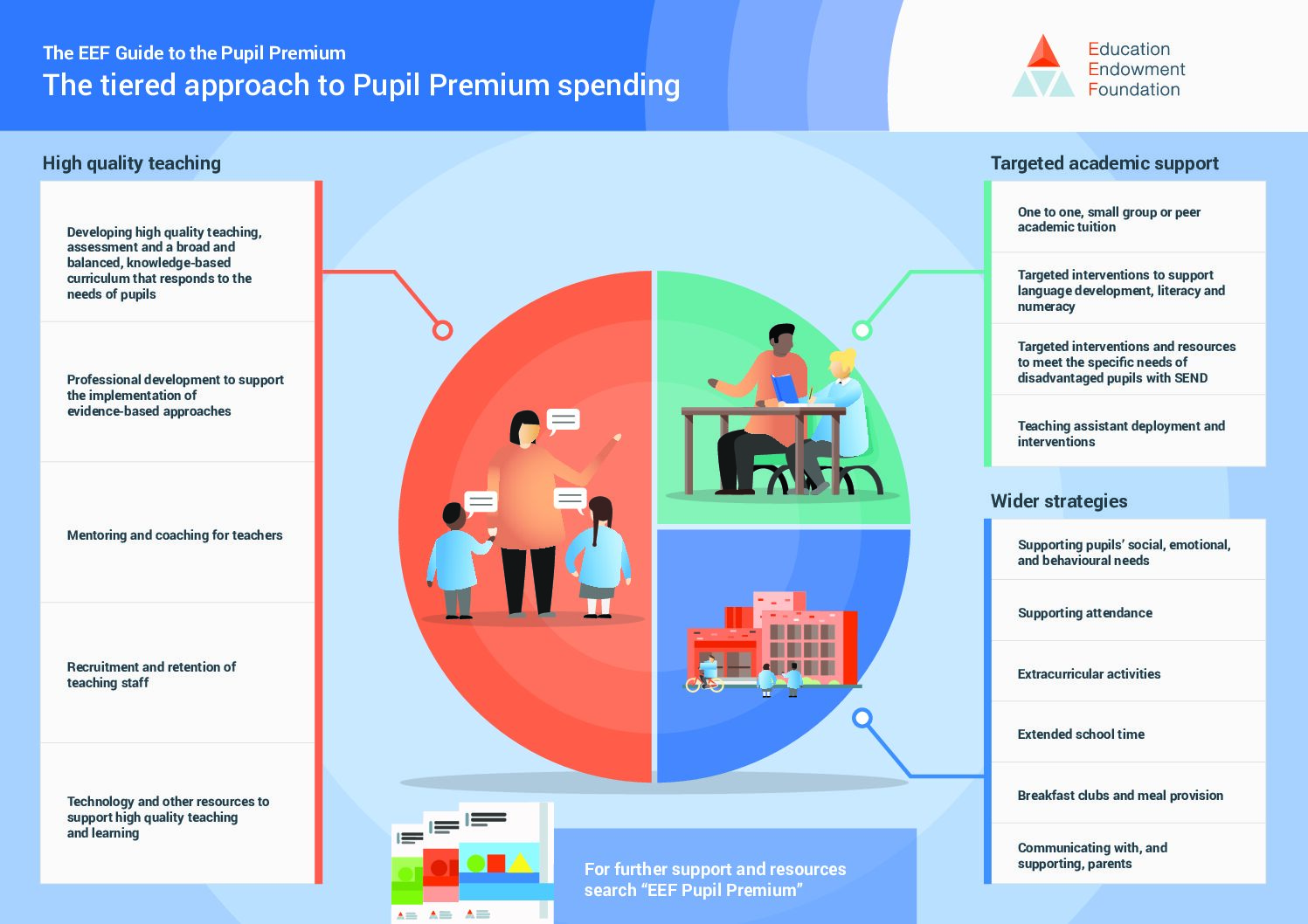Pupil Premium
Pupil premium is a government scheme that was introduced to improve the educational outcomes of ‘disadvantaged’ children and support pupils with parents in the Armed Forces. It was launched after research suggested that there was a significant gap between the educational performance of disadvantaged children and their classmates. Compared to other children, many children who are eligible for pupil premium have to face extra challenges daily, such as: attendance issues, lack of confidence and communication difficulties. The premium is provided to enable these pupils to be supported to reach their potential and have experiences and opportunities to support this. The grant provides funding so that schools can provide additional support and improve educational outcomes for children who are faced with these types of challenges. It aspires to ‘narrow the gap’ in educational progress and outcomes between children considered to be disadvantaged and their peers.
The Government have used pupils entitled to free school meals (FSM), children in care (CiC), children previously in care (CPiC) and Service Children as indicators of disadvantage, and have provided a fixed amount of money for schools per pupil, based on the number of pupils registered for FSM over a rolling six-year period. At Knutton, St. Mary’s CE Academy we will be using the indicator of those eligible for FSM as well as identified vulnerable groups as our target children to ‘diminish the difference’ regarding attainment.
We also recognise that not all pupils eligible for pupil premium funding will have lower attainment than their peers. In such cases, the grant will be used to help improve pupils’ progress and attainment so that they can reach their full potential.
Pupil Premium Policy
2023-2026 Pupil Premium Strategy
2021-2024 Pupil Premium Strategy
2019-2020 Pupil Premium Strategy
2020-2021 Pupil Premium Strategy
Who can get the Pupil Premium Funds?
Pupils can get the Pupil Premium if certain criteria are met:
•Ever 6 Free School Meals Children- children who get, or have had, free school meals in of any the last six years
•Looked after Children in the care of the local authority
•Children who are no longer looked after by the local authority due to adoption, guardianship or residence order
•Ever 6 Service children- children who get the service child premium up to a maximum of 6 years.
Can your child get the Pupil Premium?
If you think that you may be entitled to receive the Pupil Premium for your child please contact the school office. They will provide you with a form to complete as well as guidance on the completion of the form.
To check if your child qualifies for the Pupil Premium through Free School Meal (FSM) eligibility, you can apply directly to the local authority: Email: freeschoolmeals@staffordshire.gov.uk
Telephone: 0300 111 8007 then select option 3 followed by option 2
ONLINE: Apply online – Free School Meals – Staffordshire County Council
If you have any questions, please contact the Vice Principal/Office Manager about the Pupil Premium and they will be happy to answer any questions that you may have about how our school can best support your child.
Thank you for taking the time to read this information and for working with us to best support the education of your child.

